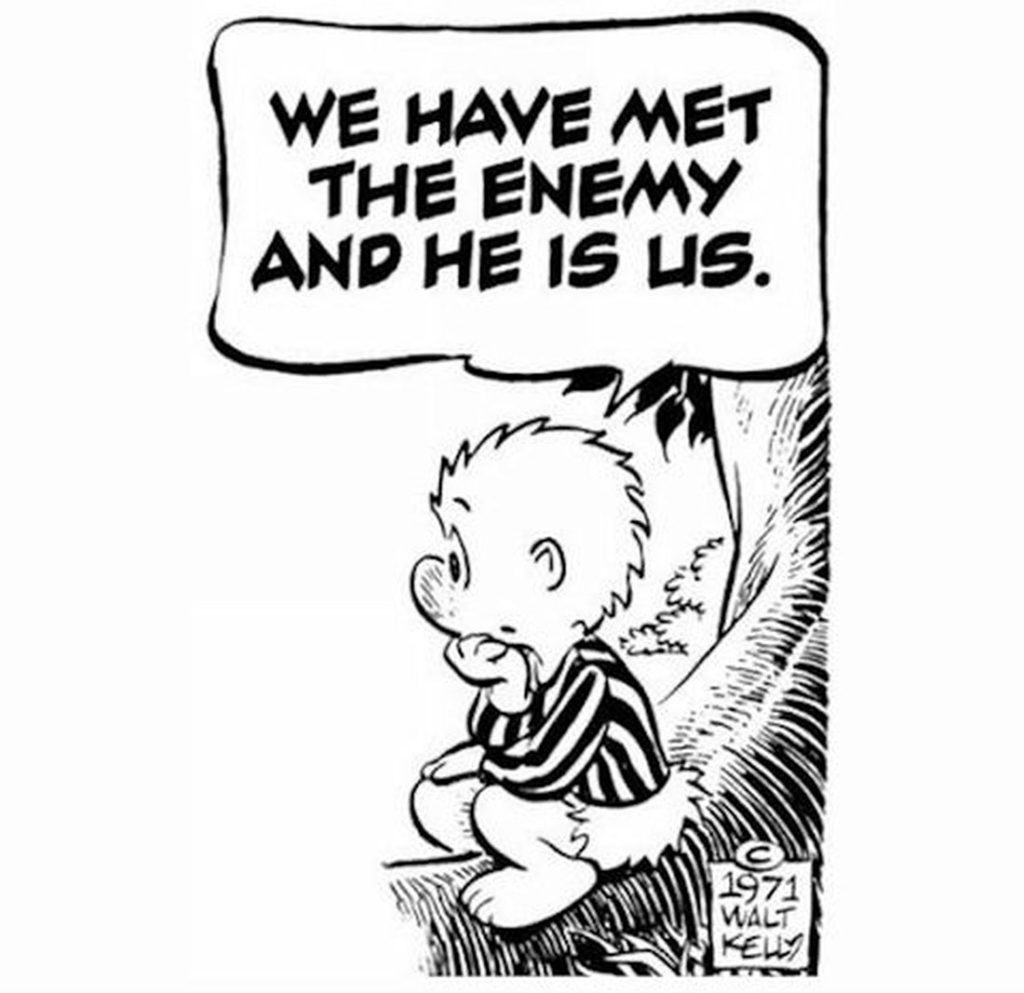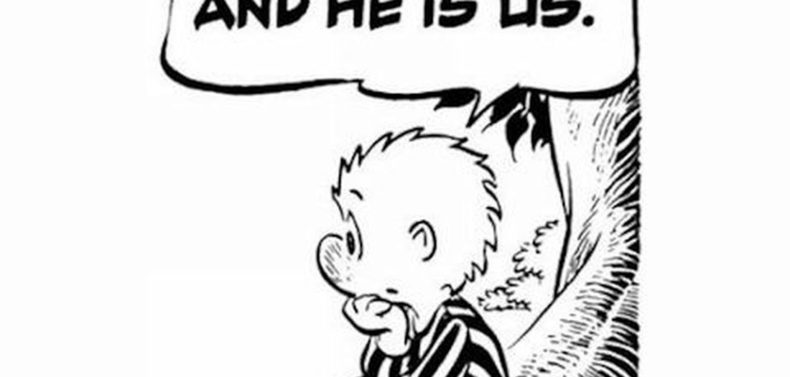National Newspaper Week runs from Oct. 3 through Oct. 9 this year, and at no time in the 81-year history of the annual observance has the role of the American press been more important, nor has the press been more maligned.
The week-long promotion of newspapers in this nation that enshrines a free press in its Bill of Rights began in 1940 as a way of contrasting America’s long tradition of press freedom with the fascistic fettering of news media in dictatorships like Nazi Germany. Today, we again face the threat of authoritarian regimes that would muzzle the media, and this time the threats come not from foreign dictatorships, but from our own people. Cartoonist Walt Kelly’s satirical newspaper comic strip “Pogo” was correct more than 50 years ago when it presciently said, “We have met the enemy, and he is us.”

During his White House term, former President Donald Trump called opposition media “the enemy of the American people,” and his Stalinesque phrase was quickly echoed by his supporters who aped Trump’s howls about “fake news.” Trump would have done well to remember the words of some of his presidential predecessors. Thomas Jefferson famously said that he would rather have newspapers without a government than a government without newspapers. James Madison recognized the flaws of the news media, but reminded Americans that, “To the press alone, checkered as it is with abuses, the world is indebted for all the triumphs which have been obtained by reason and humanity over error and oppression.” James Garfield said, “In the long, fierce struggle for freedom of opinion, the press—like the church—counted its martyrs by thousands.” George W. Bush said, “It’s important for the media to call to account people who abuse power, whether it be here or elsewhere.” All those presidents were piqued by the press during their White House years, but unlike Trump, they all recognized the necessity for accurate and aggressive reporting on politicians from the White House to the statehouse and from City Hall to the halls of Congress.
Even before Trump’s presidency, newspapers and alternative media were in trouble in America. Declining readership, shrinking advertising revenue and staff layoffs plague newspapers large and small across this nation. The coronavirus pandemic that has bedeviled this nation since early last year delivered another body blow to American news media, particularly to small daily papers and to alternative weeklies like the one you are reading right now. In the last year, several alt-weeklies have ceased print publication or have shut down entirely, including The Pulse in Chattanooga, The Oklahoma Gazette in Oklahoma City, Shepherd Express in Milwaukee and Isthmus in Madison, WI. Thanks to readers, donors, advertisers and dedicated staffers, Flagpole soldiers on as a needed voice here in Athens, where this city’s longtime daily paper has suffered a precipitous decline that underlines what New York scribe Pete Hamill meant when he wrote in 1998, “Healthy cities are essential to newspapers, but healthy newspapers are also essential to cities.”
Healthy daily newspapers and alternative media are needed now more than ever in the unhealthy political climate of a current America plagued by what Martin Luther King Jr. in 1963 called “sincere ignorance.” Mindless memes and misinformation clog cyberspace, while media that are supposed to be watchdogs turn into lapdogs. Cities that once had thriving newspapers have turned into “news deserts” without local, national and international coverage of events and issues that should concern all citizens. In the 1960s, “underground newspapers” like Atlanta’s Great Speckled Bird flourished as American “samizdat” exposing political and corporate corruption. Today, the words of warning by writer Bill Bryson apply to an America that is forsaking its newspapers at its own peril: “A world without newspapers or a world where newspapers are purely electronic and you read them on a screen is not a very appealing world.”
Like what you just read? Support Flagpole by making a donation today. Every dollar you give helps fund our ongoing mission to provide Athens with quality, independent journalism.









